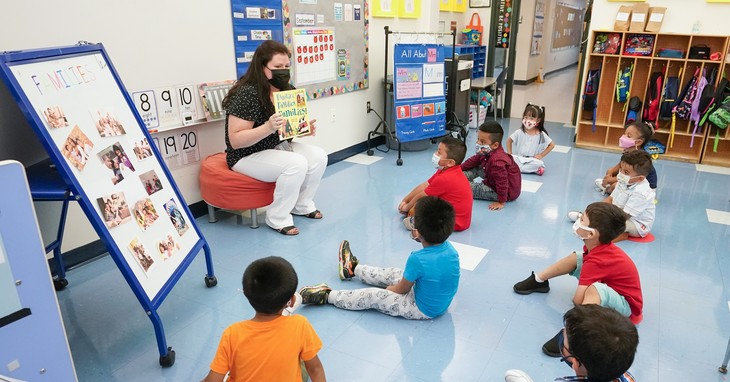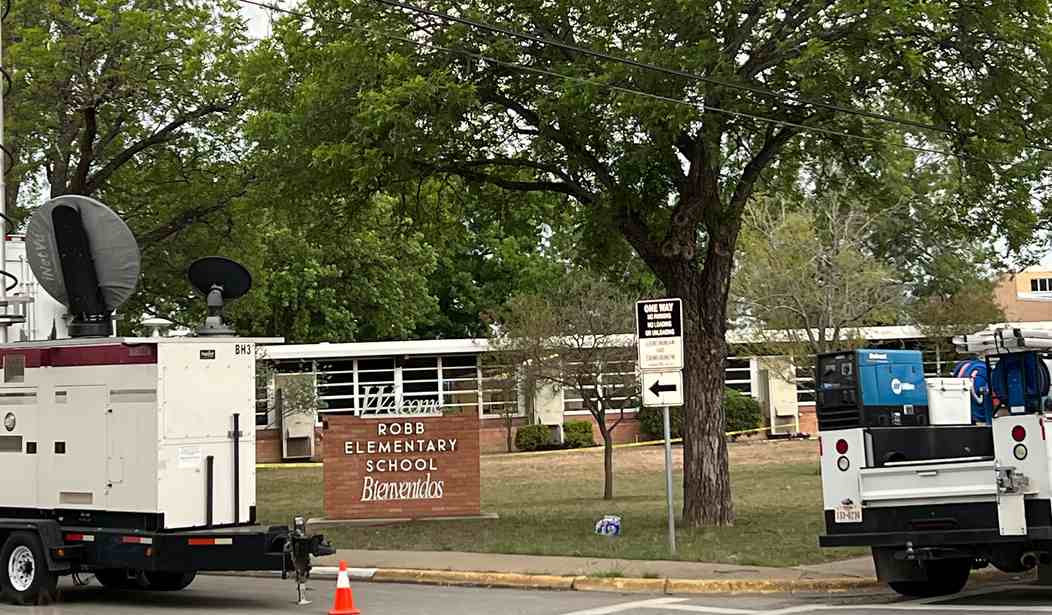In the wake of the mass shooting at an elementary school in Uvalde, Texas, the talk in political circles has once again come around to the topic of gun control. We must get rid of the scariest of guns in order to protect the children. And, as is always the case, some Republicans have come out to openly state they’re willing to “consider” or “discuss” the Left’s ideas on gun control.
This is a foolish exercise. As previously discussed, the Republicans you see loudly doing this are the foolish “above it all” Republicans like Adam Kinzinger and Bill Cassidy. And, as my colleague Bonchie explains, the Democrats are already telegraphing that what is being proposed simply isn’t enough.
It is a foolish exercise to engage with Democrats on this issue with any sort of expectation that negotiation and compromise will be enough. For them, this is an election issue. It is the latest bad guy in a series of bad guys they are trying to throw up ahead of the midterms in order to make Republicans seem like out of touch, dangerous extremists.
Chuck Schumer shouts from the Senate floor that Americans agree with the idea of gun control, but none of the Democrats will be honest and explain that while the general idea of reform polls well, specific measures often do not. Not to mention, there is the 2nd Amendment, which makes any comparison to other countries moot. Those countries don’t have a right to firearms. Democrats won’t say it openly (very often), but in truth, they see a fundamental right to firearms as a mistake that should be rectified.
The one thing that Democrats get right is that this is happening far too often. That, at some point, there has to be more than thoughts and prayers, and some sort of action has to be taken. Prayer vigils can bring communities together, but can’t undo what has been done.
The prayer vigil at the Uvalde County Fairplex begins with a hymn, “I Need Thee Every Hour.” pic.twitter.com/lJlh5G6bf7
— Julio Rosas (@Julio_Rosas11) May 26, 2022
But the Democrats were extraordinarily quick to jump on gun control after this shooting, despite the multiple issues that have come to light about the shooter’s mental health and local law enforcement’s inability to act that made the situation as deadly as it was. Where they go astray is thinking that simply banning more and more guns is the key.
Columbine happened while there was a gun ban active, and the Democrats pushed for limitations on handgun sales in the wake of that. It didn’t stop anything. The problems lingered into the present. Clearly, there are more pressing issues than the availability and the access to guns.
The mental health issue in particular is one that needs to be addressed in greater detail. We live in a world of decreasing human interaction and increasing social isolation. Especially among our kids. Even when they’re hanging out together, they prefer to stare at their phone screens in silence. They are in gaming lobbies and online servers rather than spending time outside — or, at least, out of the house.
This isn’t a new phenomenon, but it was greatly worsened by the COVID-19 pandemic and subsequent lockdowns and forced isolation. Their social and emotional growth was stymied by politicians who ignored the data that clearly suggested children were not as vulnerable to the disease as older adults were. As a result, children were isolated from their friends and social groups. They’ve lost emotional and academic development. The social skills they are meant to pick up on in school went largely unlearned.
School safety should be looked at more closely, but even more importantly, we should be offering better social and emotional support for our school children. We need people who are there to help our students.

The problem with modern education is that the professionals who are meant to be there and support our students are so bogged down with bureaucratic work that they don’t have the time to actually care for our kids. The profession of education has become transactional. You come to class, the teacher gives you instruction, and you give the teacher a good standardized test score at the end of the year.
Counselors? What counselors? There are people with that job title who are test administrators, schedulers, and makeshift administrators when no one else is free. But the people who are actually there to be counselors don’t get as many opportunities to do that work. The ones who, on occasion, are able to counsel kids rarely get enough time to work with them.
And, of course, there are still various social stigmas surrounding needing to talk to someone about your issues.
So someone like the shooter in Buffalo or in Uvalde slips through the cracks. They stop coming to school. They start showing signs of being isolated from physical society while gravitating to online groups. They show erratic behavior but no one picks up on it.
From Columbine to Uvalde, there are many different types of guns, many different types of kids, and many different styles of attacks that make these events tragic in their own ways. But the one thing they all have in common is that they are performed by people who are deeply and truly disturbed. That isn’t an excuse, but it is a sign that there is something we need to focus on more than the political talking points argued time and again about guns.
All that unspent money that was supposed to help states and communities recover from COVID-19? Why not use that to start funding more mental health-related professionals and social workers on our campuses? Why not focus on initiatives meant to build community within our classrooms and schools? Why is it that each and every time we have one of these events, the mental health aspect gets ignored except to say we need “Red Flag” laws?
Those laws, by the way, focus again on the guns and don’t actually address the mental health aspect (not to mention the due process issues involved with such laws) of these tragedies.
So, rather than seeing Adam Kinzinger or Bill Cassidy say “Sure, let’s talk about gun control,” we need a stronger push to look into the increasing (and frankly dire) mental health crisis among our children. That is the epidemic the supposed adults in the room keep missing, and it’s the greatest threat to our students’ health and safety.













Join the conversation as a VIP Member